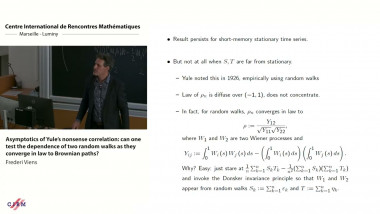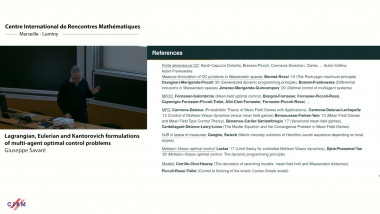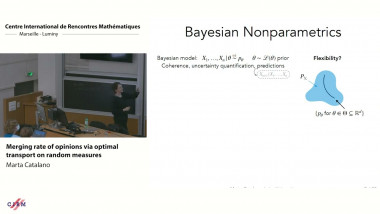Apparaît dans la collection : A Random Walk in the Land of Stochastic Analysis and Numerical Probability / Une marche aléatoire dans l'analyse stochastique et les probabilités numériques
We consider a Markov process living in some space E, and killed (penalized) at a rate depending on its position. In the last decade, several conditions have been given ensuring that the law of the process conditioned on survival converges to a quasi-stationary distribution exponentially fast in total variation distance. In this talk, we will present very simple examples of penalized Markov process whose conditional law cannot converge in total variation, and we will give a sufficient condition implying contraction and convergence of the conditional law in Wasserstein distance to a unique quasi-stationary distribution. Our criterion also imply a first-order expansion of the probability of survival, the ergodicity in Wasserstein distance of the Q-process, i.e. the process conditioned to never be killed, and quasi-ergodicity in Wasserstein distance. We then apply this criterion to several examples, including Bernoulli convolutions and piecewise deterministic Markov processes of the form of switched dynamical systems, for which convergence in total variation is not possible.
This is joint work with Edouard Strickler (CNRS, Université de Lorraine) and Denis Villemonais (Université de Lorraine).
















